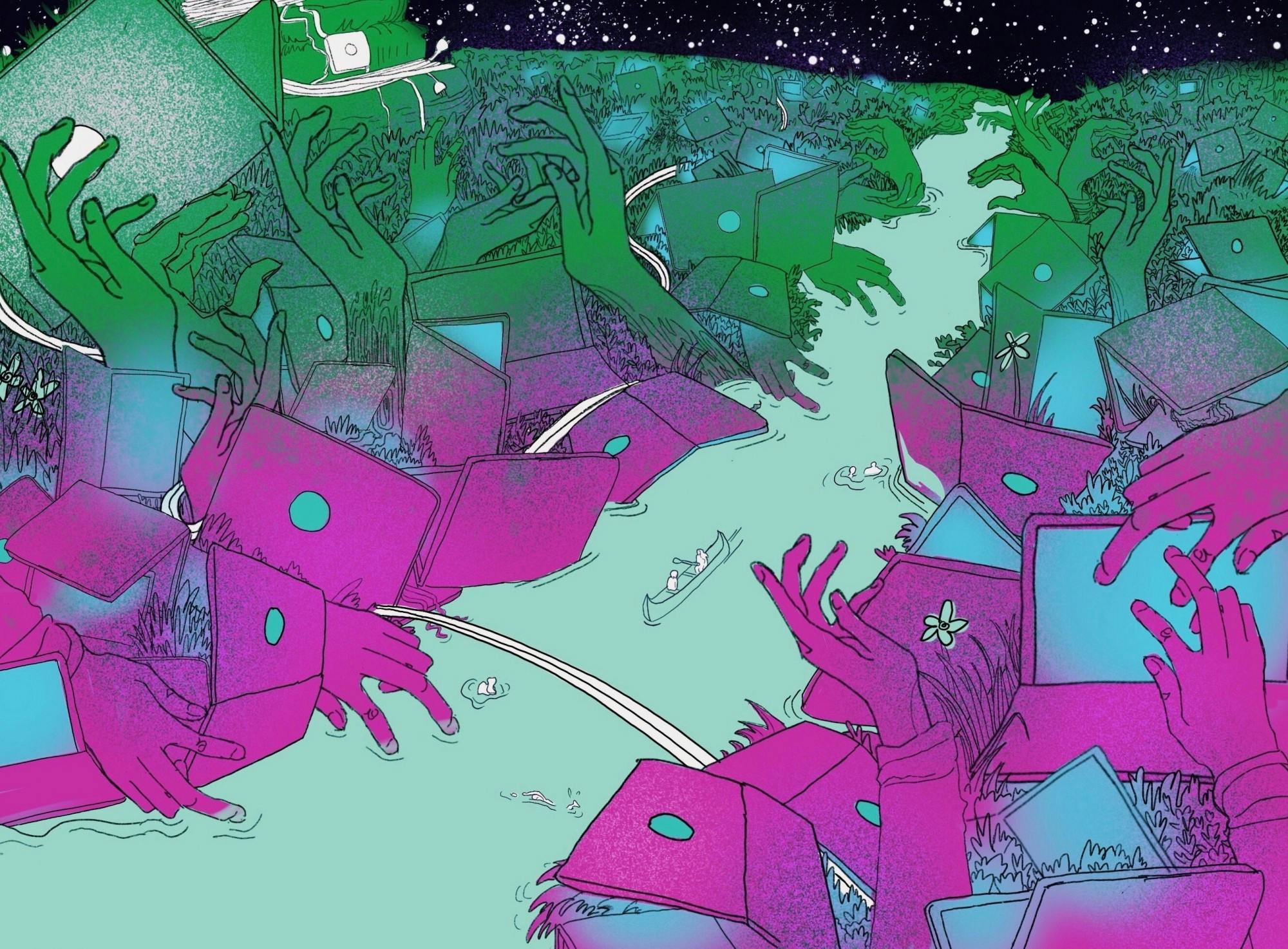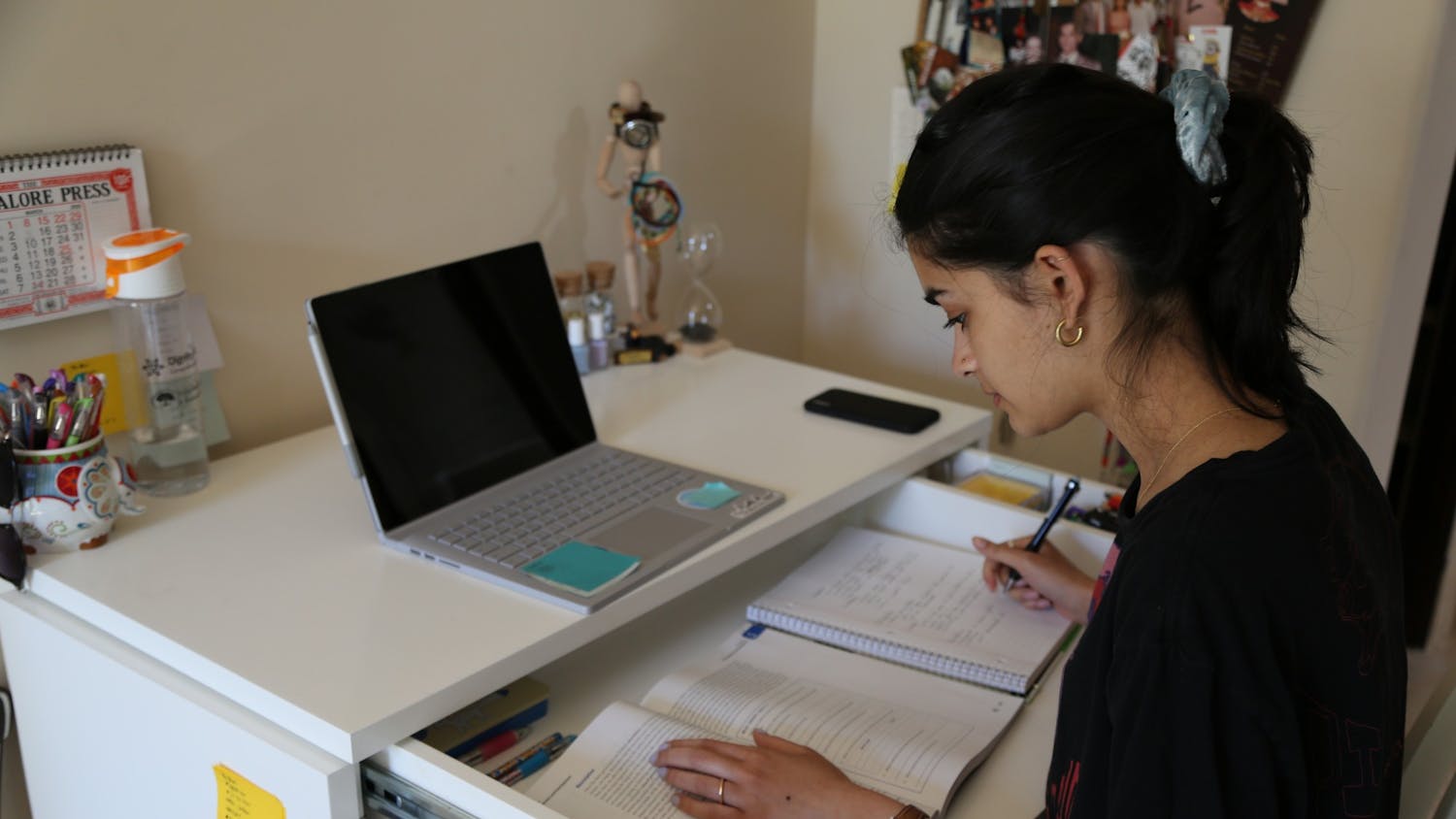For many outgoing Dartmouth students, senior spring represents a chance to create a fitting end to their time at the College. Having finally completed their academic requirements, seniors have the opportunity to create meaningful, fulfilling academic experiences in the classroom.
This year, however, there are no classrooms for outgoing seniors, as remote learning has created an unexpected set of circumstances for members of the Class of 2020. Thankfully, though, some students have managed to salvage their academic experience during their senior spring.
For Jonathan Gliboff ’20, classes this spring have been satisfying despite the unique conditions. Additionally, he believes his professors have done a stellar job of transitioning to online learning.
“I think this probably was my best term of classes, weirdly enough,” Gliboff said. “Not necessarily in terms of how I’m doing academically, but in terms of how much I actually enjoy the courses. I think it would’ve been better if I were on campus, but the courses themselves are incredible.”
Luke Bienstock ’20 has also had a relatively positive academic experience despite the implementation of remote learning. Though Bienstock was unable to choose many courses based solely on interest during his last terms at Dartmouth due to his minor and two majors, he feels satisfied with his final classes from an educational standpoint.
“I wish I‘d made more room for classes that weren’t strictly for my majors and minor and [distributive requirements],” Bienstock said. “Despite that, given the nature of the classes I’m taking, the content hasn’t been impacted very much … I still feel like I’m academically getting a lot out of it, but the social aspects [have] been impacted.”
Gliboff agreed that social elements of the academic experience are among the primary casualties of online learning. Despite his satisfaction with his professors and the content of his courses, Gliboff feels that something is lost when learning alone in quarantine.
“I’ve tried to look at this thing as positively as possible, but I do miss sitting in a room with a professor there, surrounded by my peers,” Gliboff said. “It’s just the little things like walking into a classroom and walking out of a classroom and being in that environment. I do think that there is something lacking with that [this term], so there is a bit of a disappointment.”
Mary Versa Clemens-Sewall ’20, who finished her final classes at the College last fall, considers herself lucky to have completed her graduation requirements before the onset of the COVID-19 pandemic. Clemens-Sewall was able to attain academic goals during her final term of classes, but she is unsure whether she could have accomplished those goals through online learning.
“One of my classes in my final term was a documentary video-making [course], so that wouldn’t have worked [with remote learning] because we were in a group of three, videotaping with College equipment,” Clemens-Sewall said. “Academically, [online classes] would have limited my options. Taking a group project class was actually one of my goals for my last term, so I’m really glad I got to do it.”
Despite finishing her final courses at Dartmouth last November, Clemens-Sewall does not see that time as the end of her Dartmouth experience. Clemens-Sewall has maintained multiple leadership positions at the College during the winter and spring; before the pandemic forced students off campus, she planned to stay in Hanover throughout the spring term. Though her time taking classes at Dartmouth was unaffected by the pandemic, Clemens-Sewall still felt its effect on the final few months that she planned to spend in Hanover.
“The fulfillment of my plans and goals and ideals for college was something that I intended to happen up until June of this year,” Clemens-Sewall said. “I had a very fulfilling winter [with] lots of activities … and extracurriculars [and] lots of connections in the Upper Valley community, and I’m really grateful for that. There were definitely things that I was looking forward to in springtime, like doing more things outdoors and [seeing] a lot more of my friends who are juniors and sophomores back on campus.”
Similarly, Bienstock believes the events of this spring have negatively impacted the connections he wished to make through his final courses at Dartmouth.
“I imagined for my last quarter of classes … [being] able to meet a few new people who I hadn’t met before [and to] get a little closer with professors who I’ve had a class with before,” Bienstock said. “That’s obviously not the case. You can still get to know [others] a little bit online, but it’s not the same as sitting around a table in a seminar class and getting to know people.”
Clemens-Sewall does not feel that this spring will negatively affect her feelings about Dartmouth in the long run.
“I think the biggest thing is that you lose a sense of closure,” Clemens-Sewall said. “I like to say that I crashed into college and I crashed out. My first term was the 2016 presidential election, and my last term was the coronavirus pandemic. It’s not like I expect Dartmouth to somehow have not been affected by the coronavirus pandemic. I do grieve that sense of closure that I’ve missed, but I don’t fault Dartmouth for that.”
Bienstock also feels a lack of closure as he prepares to finish his academic career at Dartmouth in a less-than-ideal manner.
“It’s definitely not how you imagine wrapping up your college experience,” Bienstock said. “It just sort of fades away. It doesn’t feel like there’s a formal wrapping up of the academic experience. It doesn’t feel like an ending. It just ends.”



